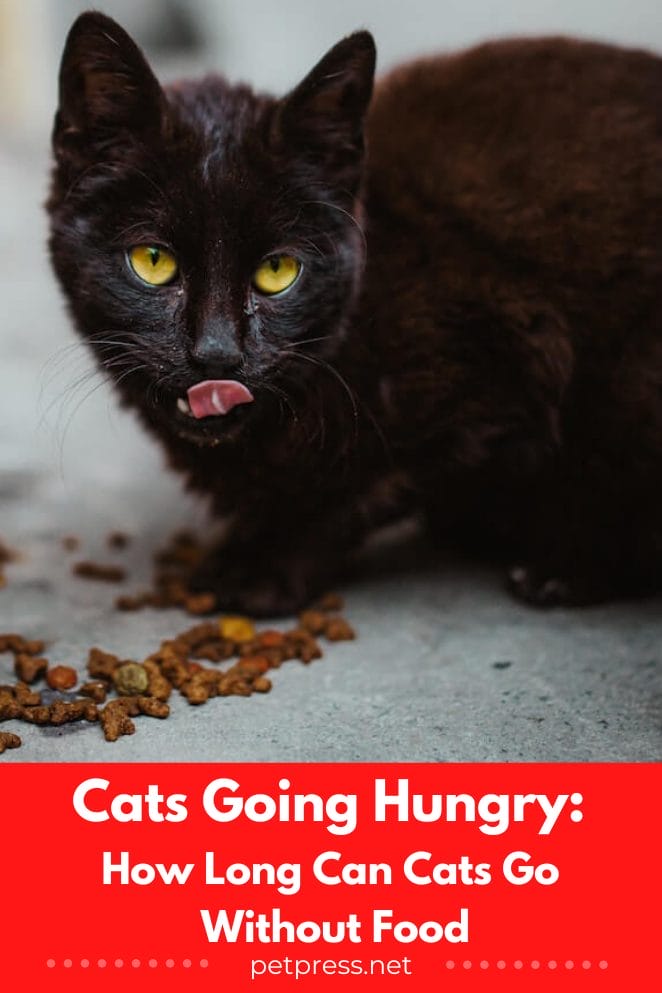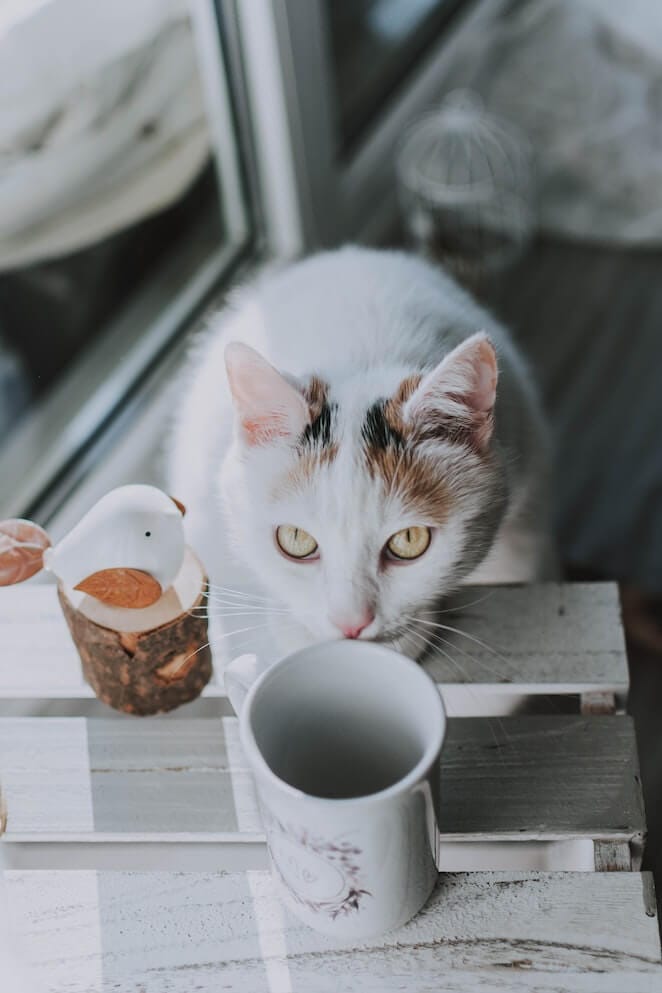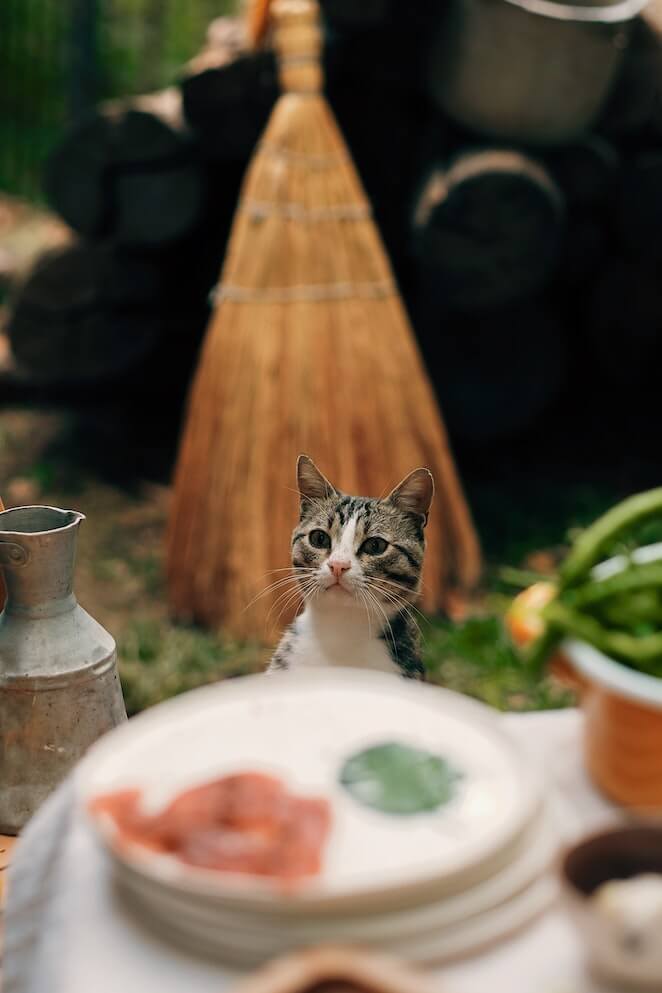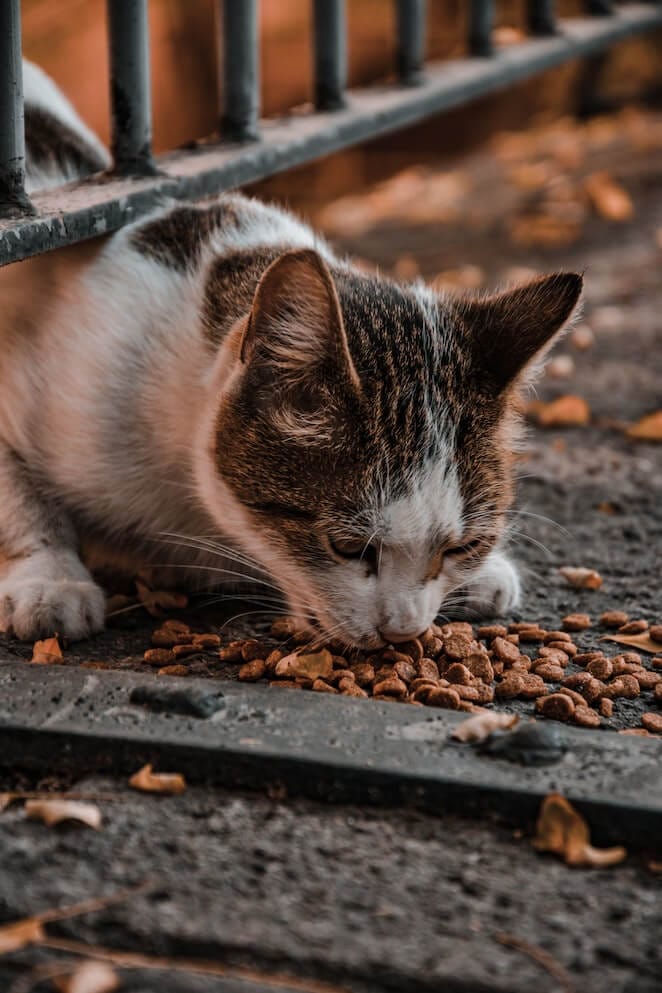
How long can cats go without food? It’s a question that many pet owners ask, especially those who are new to cat ownership.
There are a variety of factors that can influence how long a cat can survive without food, including their age, health, and activity level.
For a healthy, adult cat, the minimum amount of time they can survive without food is around 10 days. For this, they need to have access to water.
If a cat doesn’t have access to water, they will likely only survive for 3-4 days.
Kittens are much more vulnerable and can only survive for 2-3 days without food. Senior cats are also at a higher risk, as their metabolism is not as efficient as it once was.
Cats that are sick or have a chronic health condition will also not be able to go as long without food.
The best way to ensure your cat doesn’t go hungry is to always keep their bowl full of fresh, dry food. If your cat is not eating food then it can be possible that they might be bored as cats have a tendency of behaving this way.
If you’ll be away from home for more than a day, make sure to ask a friend or neighbor to check on your feline friend and top off their food as needed.
What happens if a cat misses a meal?

If a cat misses a meal or two, there’s usually no cause for concern.
Cats are resilient creatures and can often go without food for a day or two without any ill effects.
However, if a cat misses several meals in a row, they may begin to experience some health problems.
If a cat goes more than 24 hours without food, they may start to experience liver damage.
In addition, cats who are not eating enough may also suffer from dehydration, which can lead to other health problems.
If you think your cat is missing meals, be sure to talk to your vet to find out the best course of action.
What causes sudden loss of appetite in cats?

A sudden loss of appetite in cats can be caused by a number of things, including stress, illness, pain, and even certain medications. Let’s take a closer look at each of these five potential causes:
1. Stress: Just like us, humans, our feline friends can get stressed out from time to time. Whether it’s a move to a new home, the addition of a new pet or baby to the family, or even just a change in their daily routine, stress can lead to a loss of appetite in cats.
2. Illness: If your cat is feeling under the weather, it’s likely that their appetite will suffer as well. Some common illnesses that can cause a loss of appetite in cats include upper respiratory infections, gastrointestinal issues, and even cancer.
3. Pain: If your cat is in pain, whether from an injury or illness, they may not feel like eating. This is because the act of eating can be painful for them.
4. Medications: Some medications, such as those used to treat pain or inflammation, can cause a loss of appetite in cats. If your cat is on any medication, be sure to discuss with your veterinarian the possibility of appetite loss as a side effect.
5. Old age: As our feline friends’ age, they may start to lose their appetites. This is often due to a decrease in activity level and a general decline in their overall health. If you notice your elderly cat is eating less, be sure to speak with your veterinarian to rule out any underlying health issues.
What do you do when your cat won’t eat?

If your cat isn’t eating, there are a few things you can do to try and convince them to eat. First, check with your veterinarian to make sure there isn’t a medical reason for your cat’s lack of appetite. If there isn’t, then you can try some of the following hacks:
1. Try a variety of foods
One reason your cat may not be eating is that they’re simply not interested in their food.
If you’re only offering one type of food, it’s no wonder they’re not thrilled about meal time.
Cats are notoriously finicky eaters, so it’s important to offer a variety of options.
If they’re bored of their dry food, try adding some wet food or vice versa. You can also try out different flavors and textures.
2. Make sure the food is fresh
Another reason your cat may not be eating is because their food isn’t fresh.
Just like we humans, cats prefer fresh food over stale food. If the food has been sitting out for a while, it’s likely lost its appeal.
Try to offer fresh food at each meal and see if that makes a difference.
3. Check for medical issues
If your cat suddenly stops eating, it could be a sign of a medical issue.
If they’re not feeling well, they may not have an appetite. It is always best to take them to the vet for a checkup.
4. Create a comfortable environment
If your cat isn’t eating, it could be because they don’t feel comfortable in their environment.
Make sure their food and water are easily accessible and that there aren’t any potential hazards around.
Also, try to keep the area quiet and calm so they can relax while they eat.
5. Be patient
Finally, remember to be patient with your cat. If they’re not eating, it’s not the end of the world.
There will come a point where they will feel hungry and come back to you for food.
Conclusion
If your cat isn’t eating, don’t panic. There are a number of potential reasons for their lack of appetite and most of them are easily fixable.
Try some of the tips above or discipline your cat and see if you can get it’s appetite back on track. And if you have tried everything, just be patient.
They’ll eventually start eating again when they’re good and ready.
- 7 Dog Breeds With Webbed Feet And Why Do They Have Them - July 19, 2023
- 10 Best Fish For Small Tanks That Make Perfect Pets - July 18, 2023
- How to Breed Guinea Pigs: A Detailed Guide - July 17, 2023


GIPHY App Key not set. Please check settings